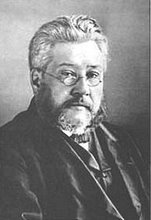Telling it like it is!
Since they didn't bother to acknowledge God, God quit bothering them and let them run loose. And then all hell broke loose: rampant evil, grabbing and grasping, vicious backstabbing. They made life hell on earth with their envy, wanton killing, bickering, and cheating. Look at them: mean-spirited, venomous, fork-tongued God-bashers. Bullies, swaggerers, insufferable windbags! They keep inventing new ways of wrecking lives. They ditch their parents when they get in the way. Stupid, slimy, cruel, cold-blooded. And it's not as if they don't know better. They know perfectly well they're spitting in God's face. And they don't care—worse, they hand out prizes to those who do the worst things best! Source





.jpg)



























3 comments:
The Message really has a way of telling it, doesn't it? Thanks Paul.
Earlier today Paul and I were discussing whether I was indulging in a bit of schadenfreude vis-à-vis Eliot Spitzer. (It’s absolutely true; I am, but I’m opposed to his politics and can’t contain my glee at his going.) I mentioned how tolerant of corruption New York voters can be, as evidenced by our electing a criminal to the office of comptroller in 2006. Paul pointed out the posted passage to me, but I think the prior passage is even more to the point:
So God said, in effect, "If that's what you want, that's what you get…"
If you know someone is venal but you vote for him or her anyway, what do you expect? On the other hand, you could honestly ask yourself, “What choice do I have?”
You can vote your convictions, but even that might not be enough. I think Sinclair Lewis’ “Elmer Gantry” is a brilliant, timeless novel because the main character is a type who will be with us forever—as a preacher, politician, movie star, or writer. Even the most thoughtful of us can be fooled some of the time.
What IS effective is to obey that modest injuction: “To act justly and to love mercy and to walk humbly with your God.”
The other person who accused me of indulging in schadenfreude cautioned me to remember the story of David and Bathsheba. I am not sure how the two events compare. Am I obliged to forgive Eliot Spitzer when he never actually wronged me? Am I obliged to vote for him if he’s truly contrite? Ought I to repent of my happiness at his downfall?
Normally I don't like paraphrases. The text here really hits home.
Post a Comment